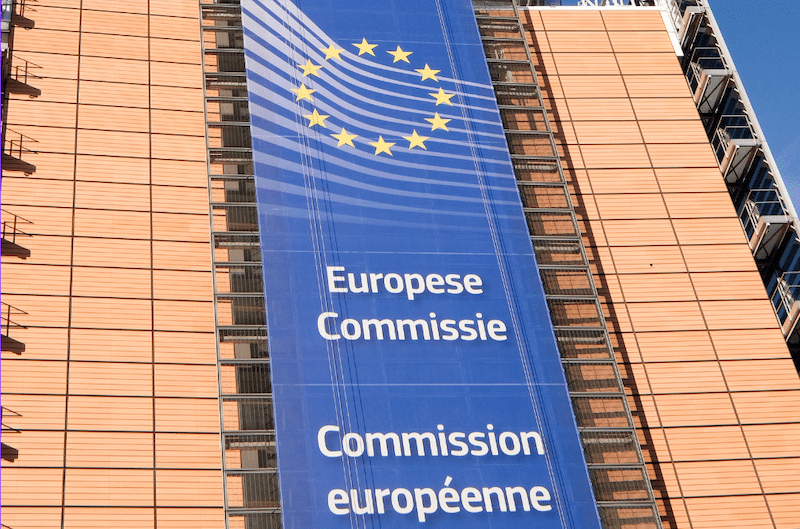
European Commission approves Italian scheme to increase biomethane production
Amidst the increasing pressure on countries to reduce reliance on Russian gas imports while addressing the ever-more pressing issue of energy security, the European Commission has announced that it has approved plans put forward by the Italian government to help increase domestic production of biomethane in the country. The approval will support ambitions set forth in the REPowerEU plan, under which the EU aims to increase production of biomethane to a share of over 12% of anticipated gas demand by 2030.
The EC has approved, under EU State aid rules, an Italian scheme made available through the Recovery and Resilience Facility (‘RRF’) to support the construction and the operation of new or converted biomethane production plants. The measure is part of Italy’s strategy to reduce greenhouse gas emissions and to increase its share of renewable energies. The scheme will also contribute to the objectives of the REPowerEU Plan to reduce dependence on Russian fossil fuels and fast forward the green transition.
Executive Vice-President Margrethe Vestager, in charge of competition policy, said: “The Italian aid scheme we have approved today will boost the EU’s production of sustainable biomethane for use in the transport and heating sectors, in line with the the REPowerEU Plan. The Italian aid measure, which will be partly funded by the Recovery and Resilience Facility, will help Italy meet its emission reduction targets, reduce its dependence on Russian fossil fuels and improve its security of gas supply, while limiting possible distortions of competition.”
The Italian scheme
The scheme notified by Italy, which will run until 30 June 2026, will be partly funded by the RRF, following the Commission’s positive assessment of Italy’s Recovery and Resilience Plan and its adoption by the Council.
The scheme will support the production of sustainable biomethane to be injected into the national gas grid for use in the transport and heating sectors. In particular, the measure is aimed at promoting the construction and the operation of new or converted biomethane production plants in Italy. In order to qualify for aid under the scheme, the biomethane production must comply with the requirements set out in the EU Renewable Energy Directive. For biomethane to be used in the transport sector specifically, only the production of advanced biomethane will qualify for aid, as it is the most sustainable and environmentally friendly fuel, to help the EU achieve its climate and energy objectives.
The aid will be granted, cumulatively, in the form of:
- Investment grants, with a total budget of €1.7 billion, which will be paid at the end of the construction phase to all supported projects. The aid amount per project will cover up to 40% of the eligible investment costs.
- Incentive tariffs, with an estimate budget of €2.8 billion, to be paid during the operational phase of the projects, for a 15-year period. The incentive tariffs, expressed in €/MWh, will be determined in a competitive tender on a pay-as-bid principle. The support will cover the difference between the incentive tariffs and the evolving gas prices, and will be paid out on a monthly basis. In case of high gas price increases, a claw-back mechanism is in place so that any amount exceeding the incentive tariffs will be paid back.
The projects will be selected through a transparent and non-discriminatory bidding process, where beneficiaries will compete for the lowest amount of the incentive tariff needed for an individual project to go ahead. The first call for projects will start as of 2022. In order to benefit from funding through the RRF, the constructions or conversions of biomethane production plants should be completed by 30 June 2026.
The Commission’s assessment
The Commission assessed the scheme under EU State aid rules, in particular Article 107(3)(c) of the Treaty on the Functioning of the European Union (‘TFEU’), which enables EU countries to support the development of certain economic activities subject to certain conditions, and the Guidelines on State aid for climate, environmental protection and energy 2022.
The Commission found that:
- The scheme facilitates the development of certain economic activities, in particular the production of sustainable biomethane.
- The aid has an ‘incentive effect’, as the beneficiaries would not carry out the investments in sustainable biomethane production to the same extent without the public support.
- The measure has a limited impact on competition and trade within the EU. In particular, it is necessary and appropriate to reduce dependence on Russian fossil fuels and fast forward the green transition. In addition, it is proportionate and any negative effect on competition and trade in the EU will be limited in view of the size of the projects, the aid amounts and the characteristics of the sector. Moreover, necessary safeguards limiting the aid to the minimum will be in place, including a competitive bidding process for awarding the aid and a claw-back mechanism in case of market price increases.
On this basis, the Commission approved the measure under EU State aid rules.

